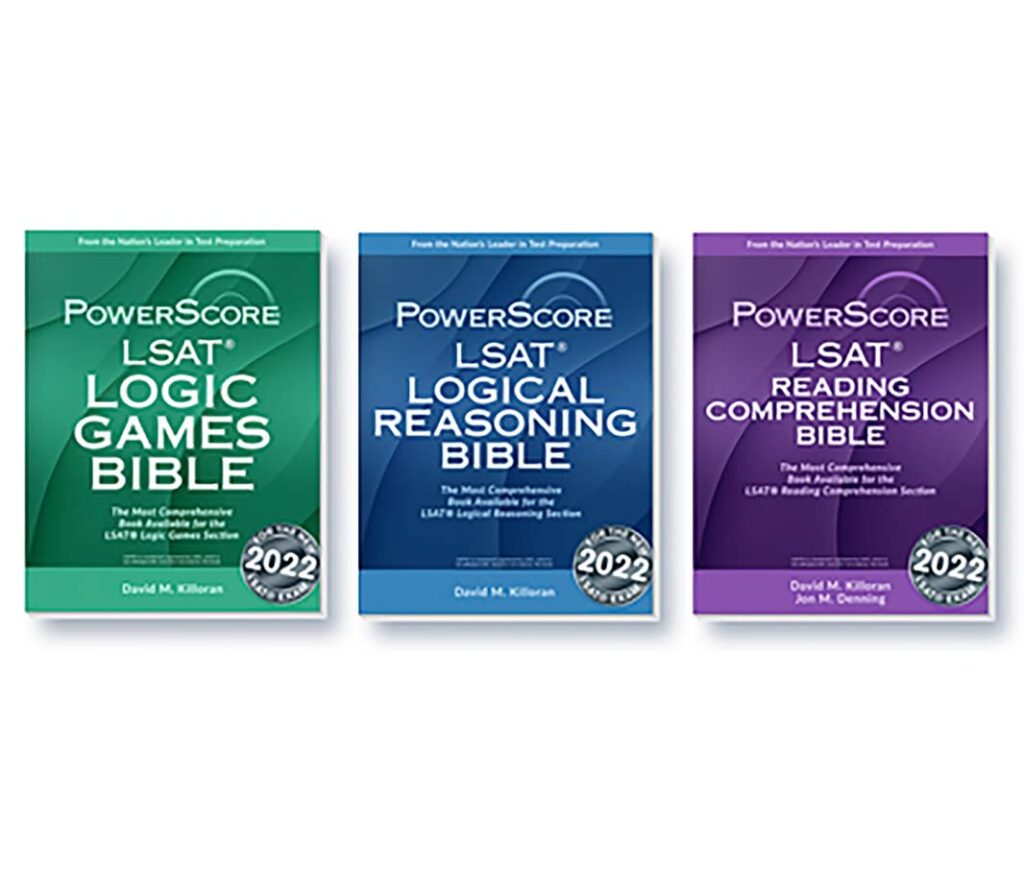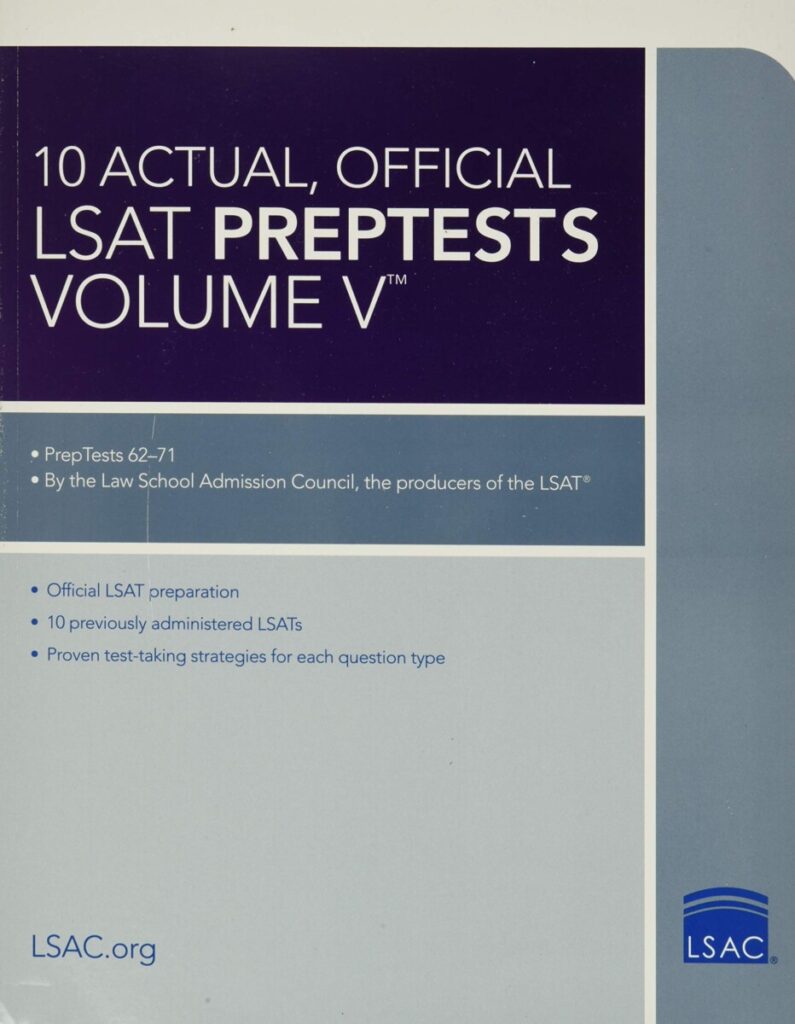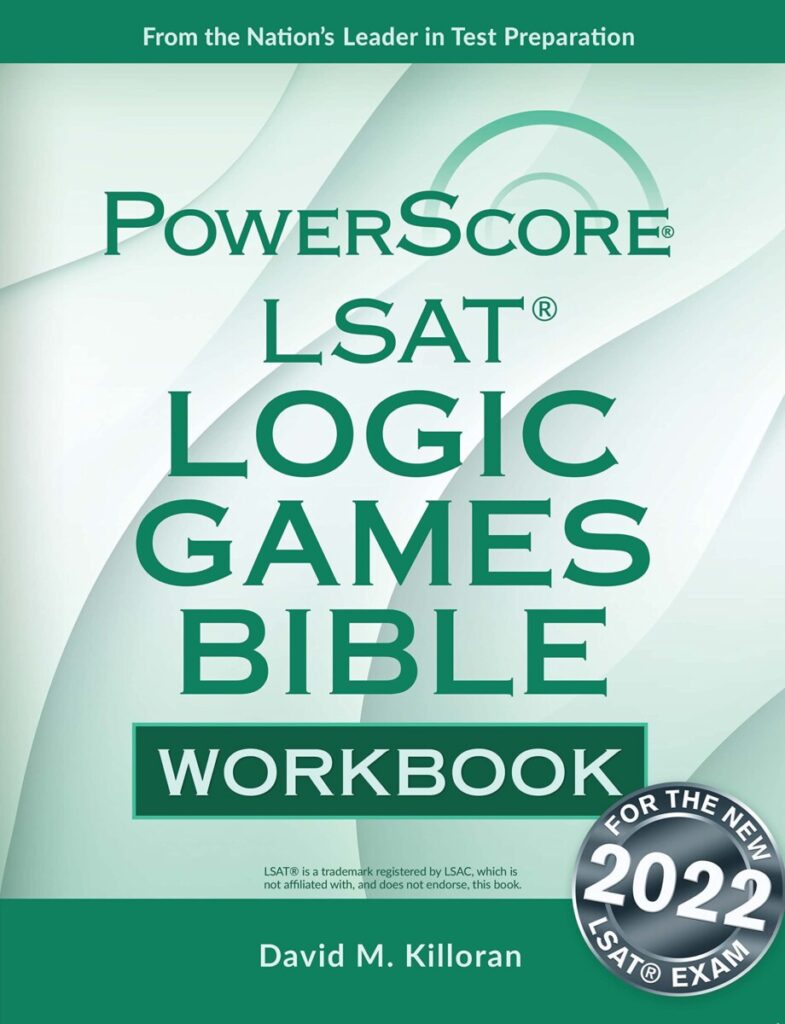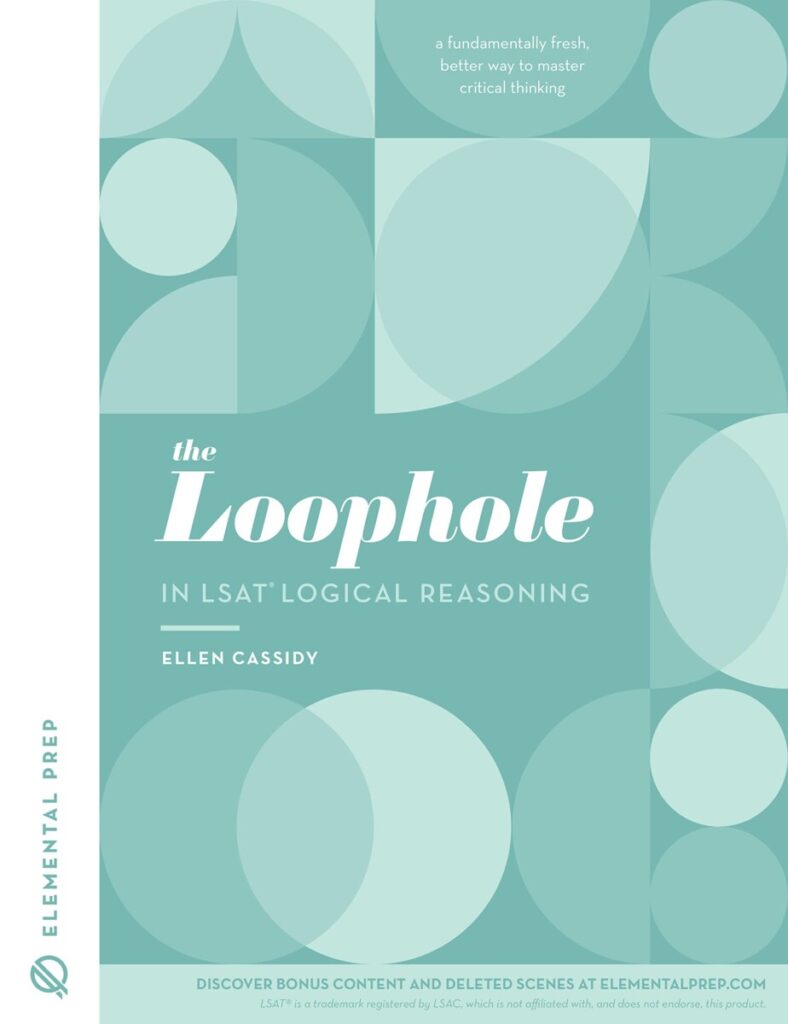The Law School Admission Test (LSAT) is a crucial step for aspiring lawyers on their journey to law school. Your LSAT score plays a significant role in determining admission to reputable law schools across the United States.
To help you achieve your law school dreams, we present The Ultimate Guide to LSAT Success: Strategies for Law School Admission.
In this comprehensive guide, we’ll delve into proven strategies and tips to maximize your LSAT performance and increase your chances of gaining admission to your desired law school. Let’s dive in!
Understand the LSAT Format and Structure
Familiarize yourself with the LSAT’s format and structure. Gain an in-depth understanding of the different sections, including Logical Reasoning, Analytical Reasoning (Logic Games), Reading Comprehension, and the unscored Writing Sample. Knowing what to expect allows you to develop effective study plans and strategies for each section.
Create a Study Schedule

Develop a well-organized study schedule tailored to your needs. Allocate dedicated time for LSAT preparation, including practice tests, review sessions, and targeted practice on challenging question types. Consistency and discipline are key to building confidence and mastering the required skills.
Utilize Quality Prep Materials

Invest in reputable LSAT prep materials, such as official LSAT practice tests, study guides, and online resources. These materials provide authentic practice questions and valuable insights into the exam’s content and structure. Supplement your preparation with review books and online courses from trusted sources.
Take Practice Tests

Regularly take full-length practice tests under simulated exam conditions. Practice tests help familiarize you with the time constraints, improve your pacing, and identify areas that require further improvement. Analyze your performance, review mistakes, and identify patterns to refine your strategies.
Develop Strong Analytical and Logical Reasoning Skills

The Logical Reasoning section is a critical component of the LSAT. Enhance your analytical and logical reasoning skills by practising with sample questions and understanding argument structures, logical fallacies, and effective reasoning techniques. Develop the ability to evaluate arguments critically and identify underlying assumptions.
Master Logic Games

Logic Games can be intimidating, but with practice, they can become your strong suit. Break down complex game scenarios, create diagrams, and develop effective strategies to efficiently solve each game. Recognize common game types and practice with a variety of sample games to build speed and accuracy.
Improve Reading Comprehension

Enhance your reading comprehension skills by reading dense and challenging texts. Practice summarizing main ideas, identifying author viewpoints, and spotting crucial details. Utilize active reading techniques to improve your comprehension speed while maintaining accuracy.
Seek Professional Guidance

Consider seeking guidance from LSAT tutors or joining LSAT preparation courses. Experienced professionals can provide personalized strategies, identify your strengths and weaknesses, and offer targeted guidance to enhance your performance.
Review and Learn from Mistakes

Regularly review your practice tests and identify recurring mistakes. Understand the reasons behind your errors and use them as learning opportunities. Develop effective strategies to avoid similar mistakes in the future.
Manage Test Day Stress

On the day of the exam, manage your stress levels by practising relaxation techniques, getting adequate sleep, and maintaining a healthy lifestyle. Arrive early, bring the necessary materials, and stay focused during the exam.
Exam Pattern
The LSAT (Law School Admission Test) is a standardized exam administered by the Law School Admission Council (LSAC). It serves as a critical component in the law school admissions process for American law schools.
Understanding the LSAT exam format is essential for effective preparation and maximizing your performance on test day. Let’s explore the detailed format of the LSAT:
Logical Reasoning:
The Logical Reasoning section evaluates your ability to analyze and evaluate arguments. It consists of multiple-choice questions that require you to read short passages and answer questions based on the information provided.
The LSAT includes two Logical Reasoning sections, each containing approximately 25 questions. You’ll have around 35 minutes to complete each section.
Analytical Reasoning:
The Analytical Reasoning section, commonly known as Logic Games, measures your ability to understand and work with complex relationships and rules. It presents you with various scenarios and asks you to make deductions, create diagrams, and solve logical puzzles.
This section typically includes four sets of games, with around 5-7 questions per game. You’ll have approximately 35 minutes to complete this section.
Reading Comprehension:
The Reading Comprehension section assesses your ability to understand and analyze complex passages. It contains several passages from various disciplines, such as humanities, social sciences, and natural sciences.
Following each passage, you’ll encounter multiple-choice questions that test your comprehension, inference, and reasoning skills. The LSAT usually includes four passages with 5-8 questions per passage. You’ll have approximately 35 minutes to complete this section.
Writing Sample:
The LSAT includes an unscored Writing Sample, which is not factored into your LSAT score. This section requires you to write an essay in response to a given prompt. It is designed to assess your ability to present a well-reasoned argument and express your thoughts coherently within a limited timeframe. You’ll have 35 minutes to complete this writing task.
Experimental Section:
Apart from the four scored sections mentioned above, the LSAT may include an additional experimental section that is unscored and unidentified. This section is used by the LSAC to test new questions and evaluate their suitability for future exams.
It can appear in any format and may contain questions from any of the three scored sections. Since this section is undisclosed, it is crucial to treat each section as if it counts towards your score.
Important Note: The LSAT exam is now administered digitally on a tablet provided by LSAC. However, the overall format and content of the exam remain largely the same as the paper-and-pencil format.
Understanding the LSAT exam format enables you to develop effective study strategies, allocate time wisely, and familiarize yourself with the question types and pacing requirements for each section.
By preparing comprehensively and practising strategically, you can enhance your performance and increase your chances of achieving a competitive LSAT score, opening doors to prestigious law schools and legal career opportunities.
Law Schools Accepting LSAT Scores
- Yale Law School
- Stanford Law School
- Harvard Law School
- Columbia Law School
- University of Chicago Law School
- New York University School of Law
- University of Pennsylvania Law School
- University of California, Berkeley School of Law
- University of Virginia School of Law
- Northwestern Pritzker School of Law
- University of Michigan Law School
- Duke University School of Law
- Cornell Law School
- Georgetown University Law Center
- University of California, Los Angeles (UCLA) School of Law
- University of Texas School of Law
- Vanderbilt University Law School
- University of Southern California Gould School of Law
- Washington University in St. Louis School of Law
- University of Notre Dame Law School
Note: Please note that this is not an exhaustive list
Best Books for LSAT

When preparing for the LSAT (Law School Admission Test), choosing the right study materials is crucial. Here are some of the best books that are highly recommended for LSAT preparation:
The LSAT Trainer by Mike Kim:
Considered one of the best LSAT study guides, The LSAT Trainer provides a comprehensive overview of the exam, including strategies, techniques, and drills. It focuses on building fundamental skills and developing a strong foundation for tackling each section of the test.
The PowerScore LSAT Bible Trilogy by David M. Killoran:

This trilogy consists of three separate books: The PowerScore LSAT Logic Games Bible, The PowerScore LSAT Logical Reasoning Bible, and The PowerScore LSAT Reading Comprehension Bible. Each book provides in-depth explanations, strategies, and practice questions specific to its respective section. They are highly regarded for their detailed analysis of question types and effective approaches to solving them.
10 Actual, Official LSAT PrepTests by Law School Admission Council (LSAC):

This book contains 10 official LSAT exams previously administered by the LSAC. Working through these actual tests allows you to familiarize yourself with the format, question types, and difficulty level of real LSAT questions. Reviewing your performance on official tests is essential for identifying areas of improvement and gaining a realistic understanding of your readiness for the exam.
LSAT Logic Games Bible Workbook by David M. Killoran:

The workbook is a companion to The PowerScore LSAT Logic Games Bible. It provides additional practice drills, exercises, and detailed explanations for logic games, helping you reinforce the strategies and techniques learned from the main book.
LSAT Reading Comprehension Bible Workbook by David M. Killoran:
Similar to the logic games workbook, this companion workbook is designed to accompany The PowerScore LSAT Reading Comprehension Bible. It offers extra practice passages and questions to further develop your reading comprehension skills and reinforce the strategies presented in the main book.
The LSAT Loophole by Ellen Cassidy:

The LSAT Loophole focuses on logical reasoning and provides unique insights into question types and methods for increasing accuracy. It offers an alternative approach to logical reasoning questions, emphasizing the identification of patterns and shortcuts to solve them efficiently.
Remember, while these books are highly recommended, it’s essential to find the study materials that align with your learning style and needs. Additionally, supplementing your study with official LSAC prep materials, including previous LSAT exams and online resources, can provide valuable practice and ensure familiarity with the actual test format.
Furthermore, consider exploring online courses, tutoring services, and LSAT practice tests to enhance your preparation and gain additional support. Combining various study resources and approaches will help you build a comprehensive LSAT study plan and increase your chances of achieving a competitive score.
Important Websites

When it comes to obtaining official information about the LSAT (Law School Admission Test), it is best to refer to the following sources:
Law School Admission Council (LSAC):
The LSAC is the organization responsible for administering the LSAT. Their official website (www.lsac.org) is a valuable resource for information about the LSAT, including test dates, registration procedures, test preparation materials, and policies. The LSAC website also provides access to official LSAT practice tests, score reports, and other essential resources for prospective law school applicants.
LSAC Official LSAT Prep Materials:
The LSAC offers a range of official LSAT preparation materials, including publications and online resources. These materials, such as The Official LSAT PrepTests, provide authentic practice questions and exams that closely resemble the content and format of the actual LSAT. They are considered highly reliable resources for test preparation.
LSAC Candidate Services:
The LSAC Candidate Services team is available to assist prospective law school applicants with any questions or concerns related to the LSAT. They can provide information about test administration, accommodations, registration, and other LSAT-related inquiries. You can reach LSAC Candidate Services through their official website or contact them directly for personalized assistance.
It’s important to rely on official sources for accurate and up-to-date information about the LSAT. While there may be other reputable LSAT preparation resources available, referring to the official LSAC website and materials ensures that you have access to the most reliable and authoritative information regarding the test.
Conclusion
This article provides valuable insights and tips to help you excel in the LSAT and secure admission to your desired law school. By understanding the exam’s format, creating a structured study plan, utilizing quality prep materials, and practising diligently, you can develop the necessary skills and confidence to achieve a competitive LSAT score.
In conclusion, preparing for the LSAT requires a strategic approach and access to reliable study materials. The LSAC and its official sources of information are essential references for prospective law school applicants. By utilizing resources such as The LSAT Trainer, The PowerScore LSAT Bible Trilogy, official LSAT PrepTests, and the guidance provided by the LSAC, you can embark on a comprehensive and effective LSAT preparation journey.
Remember to tailor your study plan to your specific needs, allocate dedicated time for practice and review, and seek additional support if needed. The LSAT is a challenging exam, but with the right strategies and consistent effort, you can increase your chances of achieving a competitive score.
As you navigate the LSAT journey, stay focused, maintain a positive mindset, and use the official LSAC resources as your primary reference. Combining these resources with practice tests, online courses, and personalized guidance will help you build the skills and confidence necessary to succeed in the LSAT.
Ultimately, the LSAT is a stepping stone toward your goal of attending law school. By putting in the necessary time, effort, and dedication, you can position yourself for success and open doors to a rewarding legal career. Best of luck on your LSAT journey!
Sources of Information:


